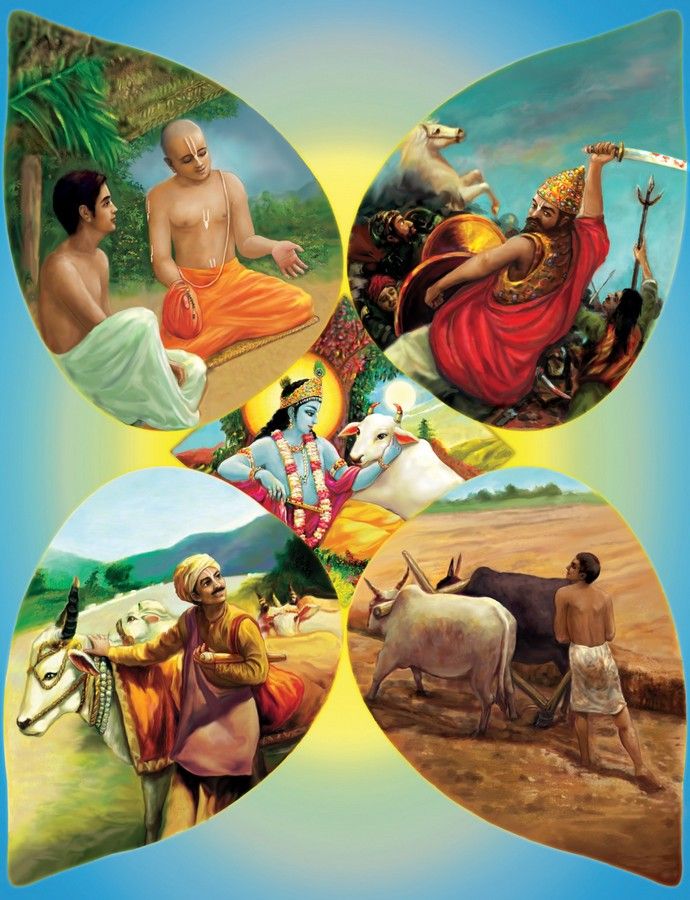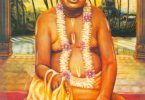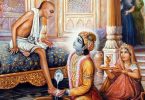Question: Lord Krishna says in the Bhagavad Gita that whatever one thinks at the time of death leads to his next body. My question is: what if someone dies in an accident or is completely unconscious at the time of leaving his body, although that person was a very pious devotee during his lifetime? What kind of body would such a person get in each of these situations?
Answer by Romapada Swami: Lord Krishna said in BG 8.7: “Whatever state of being he remembers when he quits his body, that state he will attain without fail.”
The act of remembrance is done by the spirit soul, which is always active at every single moment, without exception. However, the active condition of the soul may or may not be perceived, due to the subtle and gross coverings of the soul.
We could ascribe three states to the living conditions of an individual:
(1) Awake (jagrata) state: where the soul acts through the subtle and the gross body;
(2) Dreaming (svapna) state: where the soul manifests its activity only through the subtle body;
(3) Unconscious (susupti) state: where the soul is active but the activity of the soul is not perceived through either the subtle or the gross body. [SB 10.47.31]
The unconscious state is a broad category; it includes the state of consciousness when under anesthesia, as well as when the living entity is within the body of Maha Visnu during the cosmic annihilation. A comatose condition is another (where one may not be aware and may not respond to the external stimulus at all). Yet another is a vegetative state (where one may not be aware of his surroundings but may give some partial responses to stimuli, such as blinking eyes, etc.). The svapna state is sleep (where one’s awareness and external response are very limited).
In all of these categories of consciousness, the conditioned soul is active to differing degrees. While in all circumstances, the subtle body contains stored imprints from the past.
Depending on the stored impressions associated with the subtle body (which are formed on account of past interactions with material nature or one’s karma), the living entity qualifies himself for the next body.
Accordingly, Lord Krishna gives suitable remembrance to the conditioned soul at the time of death. This is confirmed in BG 15.15, wherein Krishna states that He is seated in everyone’s heart and from Him come remembrance, knowledge and forgetfulness. In other words, we are dependent on Krishna for our remembrance of the next state at the time of death.
From an absolute standpoint, nothing is an accident. From a living entity’s standpoint, it may seem like an accident, but according to SB 3.31.1 (karmana daiva netrena), the transmigration of the soul to the next body is brought about under the supervision of the Supersoul (daiva), in accordance with the accumulated karma (or the stored imprints of the subtle body).
If one is sincerely leading a life of a devotee, Krishna can intervene in the circumstances mentioned in your question, giving the soul suitable remembrance so that he can complete his journey back to Godhead or take birth in a devotee family. This is confirmed by Krishna in BG 6.42-43 as follows: If unsuccessful after long practice of yoga, he takes his birth in a family of transcendentalists who are surely great in wisdom. Certainly, such a birth is rare in this world. On taking such a birth, he revives the divine consciousness of his previous life, and he again tries to make further progress in order to achieve complete success.







